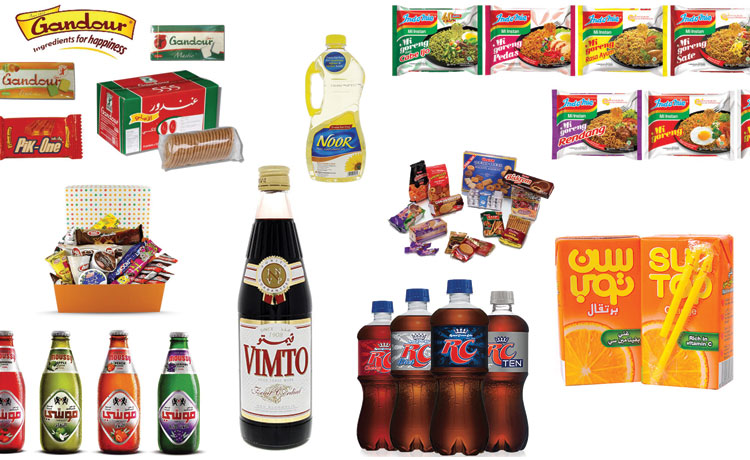
Ksa Consumers Are More Inclined to Purchase Local Brands For Food Category Products
In a recent online survey conducted by Nielsen, a leading provider of information and insights, consumers in the Kingdom of Saudi Arabia (KSA) are displaying a growing preference for locally manufactured products in the food category especially for dairy and fresh foods.
Preference for local brands was highest in dairy products like milk, butter, cheese and yogurt (69%), which is higher than that of the global average (54%). Consumers were also more inclined to opt for a locally manufactured product over a global brand in categories such as mineral/bottled water (33%) and biscuits/chips/snacks/cookies (33%). The KSA consumers also displayed a much stronger preference for local brands when it comes to tea/coffee (32%) compared to the global average.
For perishable goods, consumers in the KSA prefer to source them locally from their neighborhood stores rather than supermarkets or hypermarkets, due to concerns over freshness and quality such as fresh fruits and vegetables (55%), bakery products (39%) and fresh meats/seafood (34%),
In the categories where global manufacturers have traditionally had a strong-hold, such as baby products, personal care and carbonated beverages, consumer preference remains with the global brands versus local offerings. For vitamins/supplement and pet foods categories, only 7% and 8% of consumers, respectively said they prefer to buy brands from local manufacturers.
Other categories where global brands are a clear favorite are in the non-food items, where consumers’ preference for local brands is below one in five for baby wipes/diapers (14%) and personal care and beauty products - hair care (18%), oral care (16%), skin care (13%), feminine care (13%) and body care products (13%).
The annual Nielsen Global Brand-Origin Report highlights consumers’ preference for and sentiment toward products manufactured by local manufacturers versus large global/multinational brands across 34 categories.
“While we are seeing that consumers’ preference is still relatively balanced between local and global brands in KSA, when it comes to food items, there is higher inclination towards the local brands. This could be due to the increased focus on innovations by the local players to offer better value for money and cater to the local palates,” said Arslan Ashraf, Managing Director, Nielsen Arabian Peninsula & Pakistan. “As far as non-food items are concerned, we can see that brand equity plays a role in driving consumers’ preference for the global brands versus local.”
CONSUMER PREFERENCE AROUND THE WORLD
Preference for global brands were strongest in the baby wipes/diapers and baby food/formula categories, where just 7% and 10% of consumers, respectively, said they prefer to buy brands from local manufacturers. Other categories where consumers showed low preference for local brands include vitamins/supplements (12% prefer local), pet food (12%), feminine care products (13%), energy drinks/sports drinks (14%), and canned/tinned food products (15%). Conversely, categories where consumers were more inclined to opt for a locally manufactured product over a global brand included dairy products (54%), biscuits/chips/snacks/cookies (32%), ice-cream (31%) and mineral/bottled water (30%).
Categories that saw the most notable swing in preference away from local brands compared to the previous survey conducted in 2015 include mineral/bottled water (down 22 percentage pts [pps] to 30%), instant noodles (down 21 pps to 21%), oral care products (down 15 pps to 18%), laundry products (down 13 pps to 21%), pet foods (down 13 pps to 12%), carbonated soft drinks (down 12 pps to 18%) and baby wipes/diapers (down 11 pps to 7%). The hair care (18%), alcohol (16%) and baby food/formula (10%) categories all saw a 10-pp decline in preference for local brands from 2015.
“In today’s world of hyper-connectivity and globalization, consumers have a wider array of product choices than ever before,” observes Regan Leggett, Head of Foresight and Thought Leadership, Growth Markets, Nielsen. “Importantly, consumers also have greater access to global brands than they have in the past, thanks to factors such as expanding distribution, e-commerce offerings, and modern trade retail channels. As a result, we’re seeing a swing in preference toward the big multinationals.
“Other factors at play include consumer perception around quality, particularly in high involvement categories such as baby care.”
At a regional level, market nuances were evident, with consumer preference for global versus local brands varying widely within a number of categories. In the dairy category, consumer preference for local brands was much more pronounced in Africa and the Middle East (73%) and Europe (66%) compared to the global average (54%). In the biscuits/chips/snacks/cookies category, consumer preference for local brands was prevalent in Southeast Asia (50%), Africa and the Middle East (41%) and Latin America (41%) compared to 32% globally. In Europe, consumers were much more likely to opt for local alcohol brands compared to the global average (22% vs. 16%), while Southeast Asian consumers showed stronger affinity for local instant noodle brands compared to the global average (39% vs. 21%).
“The variation across regions illustrates the relative strength of local manufacturers within specific categories, particularly where they are appealing to local consumers’ tastes,” emphasizes Leggett. “In Southeast Asia, for example, where noodles are a staple in consumers’ diets, local manufacturers have been able to maintain a stronghold on the category. Similarly in European markets locally sourced dairy products are perceived to be of a higher quality than imported products.”

























